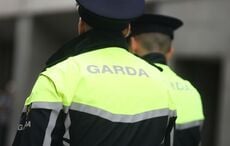U.S. Congressman Peter King has defended his support for the IRA in front of the British Parliament at an inquiry into the roots of Muslim terrorism.
The chairman of the House Homeland Security Committee appeared before the British inquiry on Tuesday months after he was branded a hypocrite.
King came under fire when he launched his own hearings into domestic radicalization in the American Muslim community.
Several critics, including a survivor of a 1990 IRA bomb in London, pointed to King’s long term support for the IRA.
They highlighted King’s involvement in the 80s with a US group believed to have raised funds for the Republican paramilitary outfit.
_________________
Read More:
Congressman Peter King's strange journey from Irish radical to Muslim inquisitor
Peter King seeks U.S. Support for International Fund of Ireland
Peter King is wrong , the IRA did kill an American --- Harrods car bomb attack was one of the worst of The Troubles
__________________
King was invited to testify by the British Home Affairs Committee of the British House of Commons at its ‘Roots of violent radicalization’ inquiry when his IRA links re-surfaced.
Labor Party representative David Winnick challenged King when he said: “There’s been some surprise in the United States but also in Britain that you have a job looking into and investigating into terrorism.”
Winnick then quoted a King speech in support of the IRA from the 80s when he said: “We must pledge ourselves to support those brave men and women who this very moment are carrying forth the struggle against British imperialism in the streets of Belfast and Derry.”
In 1985, King said: “If civilians are killed in an attack on a military installation, it is certainly regrettable, but I will not morally blame the I.R.A. for it.”
In reply to Winnick’s remarks, King defended his comments and asked for them to be taken in context.
“I stand by it in the context of when it was said,” King responded, without hesitation.
“Those quotes were designed to put the conflict in a perspective for an American audience that was too often exposed to anti-IRA. points of view.”
King then defended his part in Irish conflict and refused to denounce the IRA.
He said: “I stand by it in the context of when it was said. I can cite you Tony Blair, as recently asMarch of this year, put out a long statement defending my record both in the 1980s and throughout the Irish peace process.
“I was just out in the hallway and Baroness Kennedy came up to me to thank me for the work I did in the Irish peace process. Paul Murphy came by last evening.
“What I was saying - and I stand by it - is that the situation in northern Ireland, there were loyalist paramilitaries and obviously Republican paramilitaries, and I believe that, I had gotten to know Gerry Adams and Martin McGuinness.
“And I was very confident that if the Republican movement could get to the table, you would see a peace process. And I believe the United States had a very significant role to play as an honest mediator, as an honest broker.
“And I worked very closely with Bill Clinton, I was very much involved in the Good Friday agreements, I was very involved in getting Gerry Adams’ visa, but also involved in getting loyalists into the United States.
“I felt that when it was on the table, that Adams and McGuinness would be able to, if you will, control the republican movement.
“And it’s worked. Tony Blair said I made invaluable contribution to peace, Bill Clinton has cited me in his memoirs as a person who was very much involved.”
Republican Congressman King also spoke of his role as that of a peacemaker without prejudice.
He added: “ It was never my position as an Irish-American, whether or not Ireland was united, to me there were injustices in the north.
“There were good people on both sides. I spent a lot of time meeting with the loyalist community, the unionist community, at the same time, and I came away from that convinced that there was a role for the U.S. to play.
“What I was saying with those quotes, I was also trying to put in perspective. All of the quotes were anti-I.R.A. in the United States, no mention ever made of the UVF or the UDA or the Red Hand Commandos or whatever.
“I was trying to put it in a perspective to show that there were people - that this is not just the terrorist mayhem it was made out to be - that there were significant leaders on the Republican side.”




Comments